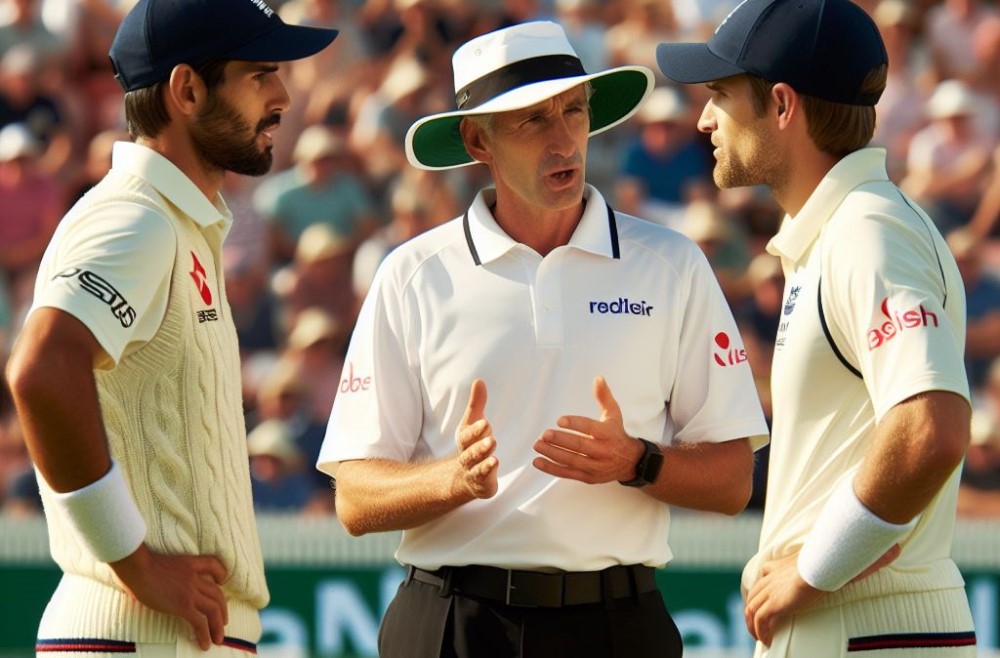
The Role of Cricket in Promoting Fair Play
Cricket has long been celebrated as a sport that not only tests the skills of its players but also upholds the spirit of fair play. From its origins in England to its current global appeal, cricket has maintained a reputation for promoting integrity and sportsmanship. In this article, we explore the role of cricket in promoting fair play and how its rules, culture, and practices contribute to a game that values fairness above all else.
At the heart of cricket is a complex set of rules and scoring systems designed to ensure that the game is played fairly. Understanding the importance of these rules is crucial, as they form the foundation for all matches, ensuring that every player competes on an even playing field. For those new to the sport, familiarizing oneself with the rules and scoring of cricket is the first step in appreciating the game’s commitment to fair play.
Cricket also plays a significant role in promoting inclusivity and diversity, particularly at the grassroots level. Initiatives that encourage diversity in kids’ cricket help cultivate an environment where respect and fairness are paramount, laying the groundwork for future generations of players who value sportsmanship.
However, cricket is not without its challenges. The role of sledging, a practice where players exchange verbal jabs, often tests the boundaries of fair play. While some view it as a psychological strategy, the importance of sledging in cricket raises questions about where the line between competitive banter and unsportsmanlike behavior should be drawn.
Fair play in cricket is also about mental resilience. The ability to maintain a positive and ethical mindset, even under pressure, is crucial. Building a winning mindset in cricket doesn’t just mean striving for victory but doing so with respect for opponents and adherence to the game’s principles.
The battle against sexism in cricket, particularly in women’s cricket, highlights the sport’s ongoing efforts to ensure fairness off the field as well. The fight against sexism and the push for equal opportunities reflect cricket’s broader role in promoting fairness in society.
Consistency is another cornerstone of fair play in cricket. Whether it’s maintaining form in bowling or executing strategies with precision, the ability to maintain consistency underlines the importance of fairness in performance, ensuring that success is earned through skill rather than chance.
The sport’s emphasis on strategic elements, like the role of spin bowlers or effective field placements, also plays a role in promoting fair competition, where every move is a calculated effort to outplay the opponent within the boundaries of the rules.
Training drills, such as those focused on hand-eye coordination and fielding positions, are designed to level the playing field, giving all players the tools they need to compete fairly.
Lastly, the impact of technology in cricket has been profound, ensuring greater accuracy in decisions and reducing human error, thereby enhancing the impact of technology in cricket has made the game fairer, by ensuring that critical decisions are based on data rather than subjective judgment.
Cricket’s Historical Commitment to Fair Play

Cricket has long been regarded as a gentleman’s game, with a deep-rooted commitment to the principles of fair play, integrity, and sportsmanship. From its earliest days in the 16th century to the modern era, cricket has emphasized the importance of playing the game in the right spirit, making it a model for how sports can promote ethical behavior. The tradition of fair play in cricket is not just about following the rules but also about upholding the values of respect, honesty, and integrity that are central to the game.
One of the earliest manifestations of cricket’s commitment to fair play can be traced back to the establishment of the Laws of Cricket by the Marylebone Cricket Club (MCC) in 1788. These laws were created to ensure that the game was played fairly and that all participants adhered to a set of consistent rules. The MCC’s Laws of Cricket emphasized the importance of sportsmanship, requiring players to respect their opponents, the umpires, and the game itself. This focus on integrity helped to establish cricket as a sport that valued ethical behavior and respect for the rules.
The concept of fair play in cricket is also embodied in the “Spirit of Cricket“, a principle that goes beyond the written laws of the game. The Spirit of Cricket is a guideline for how players should conduct themselves on the field, emphasizing respect for opponents, umpires, and the traditions of the game. It encourages players to uphold the highest standards of behavior, even in the heat of competition. The Spirit of Cricket is often invoked in situations where the letter of the law may not cover every scenario, reminding players to act with integrity and fairness.
Throughout its history, cricket has been home to numerous examples of fair play that have become legendary. One such instance is the famous act of sportsmanship by Sir Donald Bradman, who, during the 1948 Ashes series, refused to appeal for a run-out when the opposing batsman accidentally collided with one of his fielders. Bradman’s decision to prioritize fairness over gaining an advantage became an enduring example of the values that cricket stands for. Similarly, the actions of players like Adam Gilchrist, who famously walked off the field without waiting for the umpire’s decision after edging the ball, further highlight how the principles of fair play are ingrained in cricket.
Conclusion, cricket’s historical commitment to fair play has been a cornerstone of the sport’s identity. From the establishment of the Laws of Cricket to the Spirit of Cricket, the game has always emphasized the importance of integrity, respect, and ethical behavior. These values continue to shape the way cricket is played and are a key reason why the sport is revered around the world for its commitment to fair play.
The Spirit of Cricket: A Guiding Principle
The Spirit of Cricket is a unique and integral part of the game, serving as a guiding principle that governs how the sport should be played. While the Laws of Cricket provide the framework for the rules and regulations of the game, the Spirit of Cricket is concerned with the behavior and conduct of players. It is a reminder that cricket is not just about winning or losing, but about playing the game with honor, respect, and integrity. This emphasis on sportsmanship makes cricket stand out as a sport that values fair play above all else.
The Spirit of Cricket is enshrined in the preamble to the Laws of Cricket, where it is described as the essence of how the game should be played. It emphasizes respect for opponents, teammates, and officials, and calls on players to maintain a positive and respectful attitude at all times. The Spirit of Cricket also encourages players to uphold the traditions of the game, recognizing that cricket is more than just a sport—it is a cultural institution with a rich history and set of values that must be preserved.
One of the key aspects of the Spirit of Cricket is the expectation that players will play hard but play fair. This means that while players should compete with intensity and passion, they must also ensure that their actions are within the bounds of fairness and respect. The Spirit of Cricket discourages behavior that seeks to gain an unfair advantage, such as excessive appealing, gamesmanship, or deliberate attempts to deceive the umpire. Instead, it promotes honesty and integrity, encouraging players to self-regulate their behavior and to prioritize fair play over winning at all costs.
The Spirit of Cricket also extends to the way players interact with each other and with officials. It emphasizes the importance of mutual respect, recognizing that cricket is a team sport where the success of the game depends on the cooperation and good conduct of all participants. This includes treating opponents with respect, even in the heat of competition, and accepting the decisions of umpires without dissent. The Spirit of Cricket encourages players to act as ambassadors for the game, setting a positive example for others to follow.
In practice, the Spirit of Cricket is upheld through various traditions and unwritten rules that are passed down from generation to generation. For example, the tradition of a batsman “walking” when they know they are out, even if the umpire has not given them out, is a powerful expression of the Spirit of Cricket. Similarly, the custom of shaking hands with opponents at the end of a match, regardless of the result, is a gesture of respect and sportsmanship that reinforces the values of the game.
The Spirit of Cricket is a guiding principle that upholds the values of fair play, respect, and integrity in the sport. It reminds players that cricket is not just about winning, but about playing the game in the right way. By embracing the Spirit of Cricket, players help to preserve the traditions and values that make the sport special, ensuring that cricket remains a model for fair play and sportsmanship.
The Role of Umpires in Ensuring Fair Play

Umpires play a crucial role in cricket, serving as the guardians of the game’s integrity and ensuring that fair play is maintained throughout a match. As the official arbiters of the Laws of Cricket, umpires are responsible for making decisions on the field, interpreting the rules, and managing the conduct of players. Their role is essential in upholding the principles of fair play, as they are tasked with ensuring that the game is played within the boundaries of the laws and the Spirit of Cricket.
One of the primary responsibilities of umpires is to enforce the rules of the game. This includes making decisions on matters such as dismissals, boundaries, and no-balls, as well as ensuring that the match is conducted in accordance with the Laws of Cricket. Umpires must be knowledgeable about the rules and able to apply them consistently and fairly, regardless of the teams or players involved. Their decisions have a direct impact on the outcome of the game, making their role critical in maintaining the fairness and integrity of the sport.
Umpires are also responsible for managing player behavior on the field. This involves monitoring the conduct of players and ensuring that they adhere to the Spirit of Cricket. Umpires have the authority to issue warnings, impose penalties, or even dismiss players for misconduct, such as excessive appealing, dissent, or unsporting behavior. By holding players accountable for their actions, umpires help to reinforce the values of respect, integrity, and fair play that are central to cricket.
In addition to enforcing the rules, umpires are also tasked with making difficult decisions in real-time, often under intense pressure. Whether it’s deciding on a close run-out, judging whether a catch was cleanly taken, or determining if a ball was legally bowled, umpires must rely on their experience, judgment, and instincts to make the right call. Their decisions are subject to scrutiny from players, teams, and fans, making impartiality and consistency essential qualities for any umpire. The introduction of technology, such as the Decision Review System (DRS), has added another layer of complexity to their role, as umpires must now also manage the use of video replays and other tools to ensure accurate decisions.
The relationship between umpires and players is also an important aspect of maintaining fair play in cricket. Umpires must build trust and respect with players, ensuring that their decisions are accepted without dissent. At the same time, players are expected to respect the authority of the umpires and to conduct themselves in a manner that upholds the Spirit of Cricket. This mutual respect is crucial for creating an environment where the game can be played fairly and in good spirit.
Umpires are central to the promotion of fair play in cricket. Their role as enforcers of the rules, managers of player behavior, and decision-makers on the field is essential for maintaining the integrity of the sport. By upholding the principles of fair play and ensuring that the game is conducted in accordance with the Laws of Cricket and the Spirit of Cricket, umpires play a vital role in preserving the values that make cricket a respected and admired sport around the world.
The Impact of Fair Play Awards in Cricket
Fair play awards in cricket have become an important tool for promoting ethical behavior and sportsmanship within the sport. These awards, given to teams or players who demonstrate exemplary conduct on and off the field, serve as a powerful reminder of the importance of fair play in cricket. By recognizing and rewarding those who uphold the values of the game, fair play awards help to reinforce the principles of integrity, respect, and sportsmanship that are central to cricket.
One of the most well-known fair play awards in cricket is the ICC Spirit of Cricket Award, which is presented annually by the International Cricket Council (ICC). This award recognizes the team or player who has exemplified the Spirit of Cricket through their actions during the year. Recipients of this award are celebrated for their sportsmanship, fair play, and positive impact on the game. The ICC Spirit of Cricket Award not only honors individual achievement but also serves as an inspiration for others to follow in the footsteps of those who have set a high standard for conduct in the sport.
In addition to the ICC Spirit of Cricket Award, many domestic leagues and tournaments have introduced their own fair play awards. For example, the Indian Premier League (IPL) has a Fair Play Award that is given to the team that has displayed the best conduct throughout the season. Teams are evaluated based on criteria such as respect for opponents, adherence to the rules, and the behavior of players and team management. The IPL Fair Play Award is highly regarded, and winning it is seen as a mark of honor that reflects a team’s commitment to playing the game in the right spirit.
The impact of fair play awards goes beyond just the recognition of good behavior; they also influence the way the game is played. Knowing that their actions are being monitored and that fair play is rewarded, players and teams are encouraged to maintain high standards of conduct. This has a positive effect on the overall atmosphere of the game, reducing instances of unsporting behavior and promoting a culture of respect and integrity. Fair play awards also send a strong message to fans, reinforcing the idea that cricket is a sport that values ethical behavior and that winning is not the only measure of success.
Fair play awards also play a role in shaping the future of the sport by setting an example for younger players. Aspiring cricketers look up to their heroes, and when they see their role models being recognized for fair play, it reinforces the importance of these values in their own development. This helps to cultivate a new generation of players who not only strive for excellence on the field but also understand the importance of playing the game with integrity and respect.
Fair play awards in cricket are a powerful tool for promoting the values of sportsmanship, integrity, and respect within the sport. By recognizing and rewarding those who exemplify the Spirit of Cricket, these awards help to reinforce the principles of fair play and encourage players and teams to maintain high standards of conduct. The impact of fair play awards is felt not only on the field but also in the broader cricketing community, as they inspire both current and future players to uphold the values that make cricket a respected and admired sport.
Fair Play and the Role of Coaches and Captains

Coaches and captains play a pivotal role in promoting fair play in cricket, as they are responsible for setting the tone and culture of their teams. Their influence extends beyond just tactics and strategy; they are also the leaders who instill the values of sportsmanship, integrity, and respect in their players. By leading by example and fostering a team environment that prioritizes fair play, coaches and captains help to ensure that these principles are upheld both on and off the field.
The role of the coach in promoting fair play begins with the development of a team’s culture. Coaches are in a unique position to shape the attitudes and behaviors of their players, and they must emphasize the importance of playing the game with integrity and respect. This includes teaching players not only the technical aspects of the game but also the ethical considerations that come with it. Coaches must instill in their players the understanding that how they play the game is just as important as the results they achieve. This involves reinforcing the principles of the Spirit of Cricket and encouraging players to conduct themselves with honor, even in the face of intense competition.
Coaches also play a key role in managing player behavior and addressing instances of unsporting conduct. When issues arise, it is the responsibility of the coach to address them promptly and ensure that the team’s standards of behavior are maintained. This might involve having difficult conversations with players, setting clear expectations for conduct, and implementing disciplinary measures when necessary. By holding players accountable for their actions and reinforcing the importance of fair play, coaches help to create a team environment where ethical behavior is valued and respected.
Captains, as the on-field leaders, have a direct impact on how their team conducts itself during a match. A captain’s approach to leadership can significantly influence the behavior of their teammates, making it essential for them to lead by example. Captains must demonstrate respect for opponents, umpires, and the rules of the game, setting a positive example for others to follow. Their decisions, from how they handle disputes to how they communicate with officials, can either reinforce or undermine the principles of fair play. A captain who consistently upholds the Spirit of Cricket can inspire their team to do the same, creating a culture of respect and sportsmanship.
The captain’s role in promoting fair play also involves managing the emotions and conduct of their team. Cricket can be an intense and emotionally charged sport, and it is the captain’s responsibility to ensure that their team remains composed and respectful, even in high-pressure situations. This includes discouraging excessive appealing, maintaining decorum when decisions go against the team, and encouraging positive interactions with opponents. By fostering a sense of discipline and respect, captains help to ensure that their team upholds the values of fair play throughout the match.
Coaches and captains play a crucial role in promoting fair play in cricket. Through their leadership and influence, they set the tone for how their teams conduct themselves both on and off the field. By emphasizing the importance of sportsmanship, integrity, and respect, and by leading by example, coaches and captains help to ensure that the principles of fair play are upheld in every aspect of the game. Their role is essential in maintaining the values that make cricket a sport that is admired and respected worldwide.
Conclusion: The Enduring Importance of Fair Play in Cricket

Fair play is at the heart of cricket, defining the way the game is played and shaping its culture and values. From its historical commitment to sportsmanship to the modern-day emphasis on the Spirit of Cricket, the principles of integrity, respect, and ethical behavior have always been central to the sport. These values are upheld not only by the players but also by the umpires, coaches, and captains who play a vital role in ensuring that cricket remains a model of fair play.
The impact of fair play in cricket extends far beyond the field. It influences how the game is perceived by fans, inspires the next generation of players, and reinforces the idea that sports can be a force for good. Fair play awards, the role of umpires, and the leadership of coaches and captains all contribute to maintaining the standards of conduct that make cricket a sport that is respected and admired around the world.
In conclusion, the role of cricket in promoting fair play is a testament to the sport’s enduring commitment to the values that define it. By continuing to prioritize fair play, cricket not only preserves its rich traditions but also sets an example for other sports to follow. The principles of integrity, respect, and sportsmanship will always be at the core of cricket, ensuring that it remains a game played in the right spirit, for the enjoyment of all.





